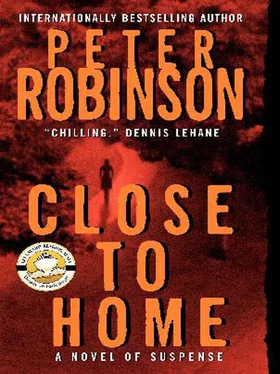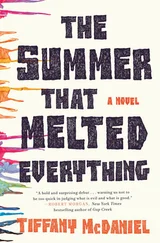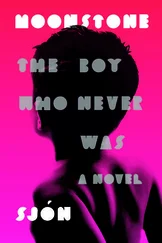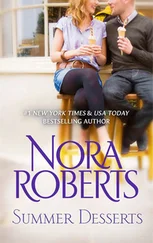“I’ll have the Cumberland sausage and mashed potatoes, please,” Michelle said. And diet be damned, she added under her breath. Lancaster ordered the roast beef.
“Bangers and mash,” he said, beaming, when the waitress had wandered off. “Wonderful. One doesn’t often meet people who go for the more traditional food these days. It’s all that nasty foreign muck, isn’t it?”
“I don’t mind a bit of pasta or a curry now and then,” said Michelle, “but sometimes you can’t beat the traditional English.”
Lancaster paused for a few moments, drumming his fingers on the table. Michelle could sense him changing gear, from old-fashioned gallant to seasoned street copper, wondering what she was after and whether it could harm him. She could see it in his eyes, their gaze sharpening, becoming more watchful. She wanted to set him at ease but decided it was best to let him lead, see where it went. At first.
“The bloke that put you on to me said you wanted to know about Reggie and Ronnie.”
There, they were out. The dreaded words. Reggie and Ronnie: The Krays .
“Sort of,” Michelle said. “But let me explain.”
Lancaster listened, taking the occasional sip of Guinness, nodding here and there, as Michelle told him about the Marshalls and what had happened to Graham.
“So, you see,” she finished, “it’s not really the twins, or not just them, anyway, that I’m interested in.”
“Yes, I see,” said Lancaster, drumming his fingers again. Their food arrived and they both took a few bites before he spoke again. “How’s your sausage?” he asked.
“Fine,” said Michelle, wondering if he was going to be any use at all or if it was going to be one of these pleasant but pointless sessions.
“Good. Good. I knew Billy Marshall and his family,” said Lancaster. Then he stuffed his mouth full of roast beef and mashed potato and looked at Michelle, eyes wide and expressionless as he chewed, watching for her reaction. She was surprised, and she was also pleased that the information Banks had given her led somewhere, although she still had no idea where.
“Billy and I grew up just around the corner from one another. We went to the same schools, played on the same streets. We even used to drink in the same pub,” he went on when he’d washed his food down with Guinness. “Does that surprise you?”
“A bit, I suppose. Though, I must say, not much about those days surprises me anymore.”
Lancaster laughed. “You’re right there, love. Another world. See, you’ve got to understand where detectives came from, Michelle. Can I call you Michelle?”
“Of course.”
“The first detectives came from the criminal classes. They were equally at home on either side of the law. Jonathan Wild, the famous thief-taker, for example. Half the time he set up the blokes he fingered. Did you know that? They hanged him in the end. And Vidocq, the Frog-gie? Thief, police informer, master of disguise. Criminal. And back then, the days you’re asking about, I think we were a bit closer to our prototypes than the office boys we seem to have in the force today, if you’ll pardon my criticism. Now, I’m not saying I was ever a criminal myself, but I lived close enough to the line at times to know what a thin line it is, and I was also close enough to know how they thought. And do you imagine for a moment those on the other side didn’t know that, too?”
“You turned a blind eye sometimes?”
“I told you. I went to school with Billy Marshall, grew up the next street over. Only difference was, he was thick as two short planks, but he could fight, and me, well, I had the smarts and the stealth, but I wasn’t much of a scrapper. Enough to survive. And believe me, you had to have that much or you were a goner. Any trouble and I’d talk my way out of it, and if that didn’t work, I’d leg it. Mostly I’d talk my way out. Is it any wonder we went our different ways? Thing is, it could’ve gone either way for me. I ran a bit wild when I was kid, got into a scrape or two. I knew exactly where people like Reggie and Ronnie were coming from. We lived in the same poor neighborhood, in the shadow of the war. I could think like them. I could’ve easily used my street smarts for criminal purposes like Reggie and Ronnie, or…” He let the sentence trail and ate some more roast beef.
“You’re saying morality doesn’t come into it?” Michelle asked. “The law? Justice? Honesty?”
“Words, love,” Lancaster said when he’d finished eating. “Nice words, I’ll grant you, but words nonetheless.”
“So how did you choose? Toss a coin?”
Lancaster laughed. “‘Toss a coin.’ Good one, that. I’ll have to remember it.” Then his expression turned more serious. “No, love. I probably joined for the same reasons you did, same as most people. There wasn’t much pay then, but it seemed a decent enough job, maybe even a bit glamorous and exciting. Fabian of the Yard, and all that stuff. I didn’t want to be a plod walking the beat – oh, I did it, of course, we all did, had to do – but I knew I wanted CID right from the start, and I got it. What I’m saying, love, is that when it came right down to it, when you stood at the bar of your local, or took your usual table in the corner, the one your father had sat at all his life, and when someone like Billy came in, someone you knew was a bit dodgy, well, then it was just a job you did. Everybody knew it. Nothing personal. We mixed, tolerated one another, hoped our paths never crossed in a serious way, a professional way. And remember, I was working out of West End Central then. The East End wasn’t my manor. I just grew up there, lived there. Of course, we were all aware there was a barrier between us, at least one we’d better not breach in public, so it was all, ‘Hello, Billy. How’s it going? How’s the wife and kid?’ ‘Oh, fine, Bob, can’t complain. How’s things down the nick?’ ‘Thriving, Billy boy, thriving.’ ‘Glad to hear it, mate.’ That sort of thing.”
“I can understand that,” said Michelle, who thought she took policing a bit more seriously and wouldn’t be caught dead in the same pub as known villains, unless she was meeting an informant. It was the same thing Shaw had said. The lines between them and us weren’t so clearly drawn as they are today, mostly because many cops and criminals came from the same backgrounds, went to the same schools and drank in the same pubs, as Lancaster had just pointed out, and as long as no innocent bystanders got hurt… no harm done. Nothing personal. Different times.
“Just wanted to get it clear,” said Lancaster, “so you wouldn’t go away thinking I was bent or anything.”
“Why would I think that?”
He winked. “Oh, there were plenty that were. Vice, Obscene Publications, the Sweeney. Oh, yes. It was all just getting going then, ’63, ’64, ’65. There are some naive buggers who look at it as the beginnings of some new age of enlightenment or something. Aquarius, call it what you will. Fucking hippies, with their peace and love and beads and long hair.” He sneered. “Know what it really was? It was the beginnings of the rise of organized crime in this country. Oh, I’m not saying we hadn’t had gangsters before that, but back in the mid-sixties, when Reggie and Ronnie were at their peak, you could have written what your average British copper knew about organized crime on the back of a postage stamp. I kid you not. We knew bugger-all. Even ‘Nipper’ Read, the bloke in charge of nailing the twins. Porn was coming in by the lorryload from Denmark, Germany, Sweden, the Netherlands. Someone had to control distribution – wholesale, resale. Same with drugs. Opening of the floodgates, the mid-sixties. License to print money. Maybe the hippies saw a revolution of peace and love in the future, but people like Reggie and Ronnie only saw even more opportunities to make cash, and ultimately all your hippies were just consumers, just another market. Sex, drugs, rock and roll. Your real criminals were rubbing their hands in glee when flower power came along, like kids given the free run of the sweetshop.”
Читать дальше












